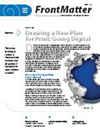厄瓜多尔北部热带山地景观的土地利用对当地气候的影响
IF 1.8
4区 环境科学与生态学
Q4 ENVIRONMENTAL SCIENCES
引用次数: 2
摘要
土地利用变化影响生物多样性和生态系统的生物物理结构,对气候调节等生态系统服务产生负面影响。然而,很少有研究评估土地利用变化对当地气候的影响,特别是在安第斯山脉等热带山地系统。因此,本研究比较了厄瓜多尔北部山区4种土地利用类型(原生林、人工林、玉米单一栽培和牧场),以评估土地利用变化对当地气候调节的影响。我们利用摄影技术估算了间隙率,并利用设置在地面以上2个高度(0米和1米)的数据记录仪记录了温度和相对湿度。正如我们预期的那样,原始森林提供了更稳定的小气候,表现出明显低于其他土地利用类型的温度和相对湿度值。这种对小气候的影响可以用中等间隙分数水平的最高温度来解释。此外,我们还观察到原生林对中气候变化具有缓冲作用;在中气候范围内,只有原始森林显示出明显的局部温度降低。在人为改变的系统(人工林和牧场)中记录的局部温度变化主要由中气候变化解释,但单一栽培在两个气候尺度之间表现出不匹配。这些结果突出了原生森林对小气候调节的重要性,这是一种生态系统服务,可以与其他生物多样性和保护目标协同作用,以可持续地管理安第斯山脉系统的景观。本文章由计算机程序翻译,如有差异,请以英文原文为准。
Land Use Affects the Local Climate of a Tropical Mountain Landscape in Northern Ecuador
Changes in land use affect biodiversity and the biophysical structure of ecosystems, causing negative impacts on ecosystem services, such as climate regulation. However, few studies have evaluated the effect of land use changes on the local climate, particularly in tropical mountain systems such as the Andes. Therefore, this study compares 4 land use types (native forest, planted forest, maize monoculture, and pasture) in a mountain landscape in northern Ecuador as a proxy to assess the impact of land use change on local climate regulation. We estimated gap fraction with photographic techniques and recorded temperature and relative humidity using dataloggers set at 2 heights (0 m and 1 m) above ground level across the land use types. As we expected, native forests provided a more stable microclimate, demonstrating significantly lower temperatures and higher relative humidity values than the other land use types. This effect on microclimate was significantly explained with highest temperatures at intermediate gap fraction levels. In addition, we observed that native forests provided a buffer effect for the variations in mesoclimate; only native forests showed an evident reduction in local temperature over the range of mesoclimates. Local temperature variations registered in human-altered systems (planted forests and pastures) were significantly explained by the mesoclimate variation, with the exception of monocultures that exhibited a mismatch between the 2 scales of climate. These results highlight the importance of native forest for microclimate regulation, an ecosystem service that can act synergistically with other biodiversity and conservation goals to sustainably manage landscapes in Andean mountain systems.
求助全文
通过发布文献求助,成功后即可免费获取论文全文。
去求助
来源期刊
CiteScore
3.10
自引率
18.80%
发文量
36
审稿时长
4.5 months
期刊介绍:
MRD features three peer-reviewed sections: MountainDevelopment, which contains “Transformation Knowledge,” MountainResearch, which contains “Systems Knowledge,” and MountainAgenda, which contains “Target Knowledge.” In addition, the MountainPlatform section offers International Mountain Society members an opportunity to convey information about their mountain initiatives and priorities; and the MountainMedia section presents reviews of recent publications on mountains and mountain development.
Key research and development fields:
-Society and culture-
Policy, politics, and institutions-
Economy-
Bio- and geophysical environment-
Ecosystems and cycles-
Environmental risks-
Resource and land use-
Energy, infrastructure, and services-
Methods and theories-
Regions

 求助内容:
求助内容: 应助结果提醒方式:
应助结果提醒方式:


